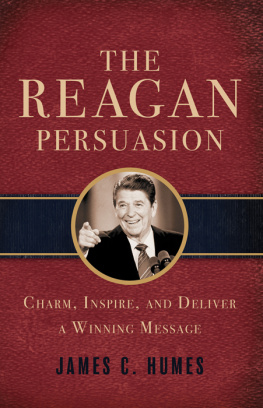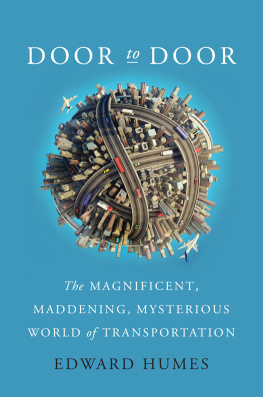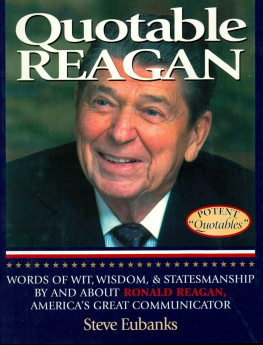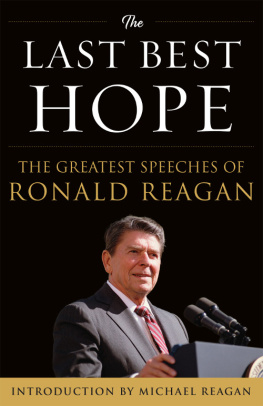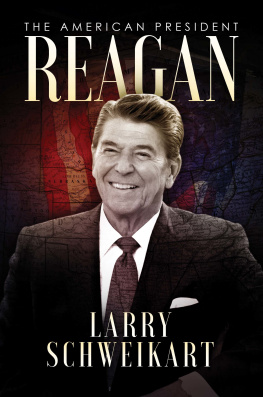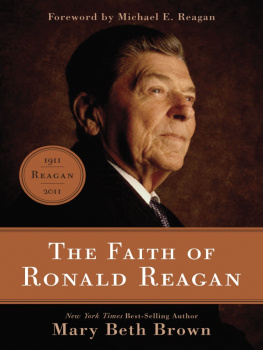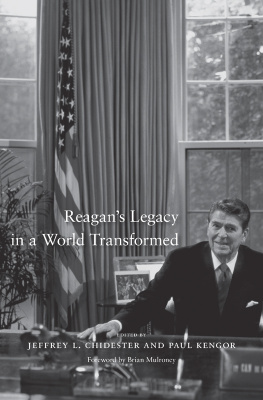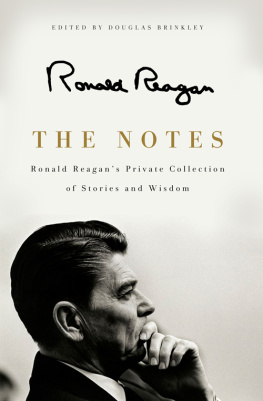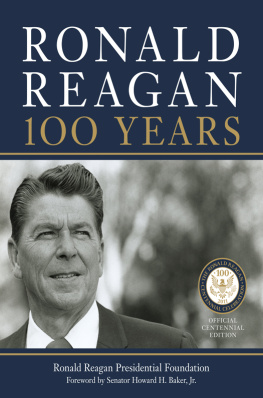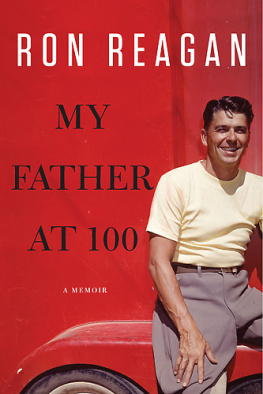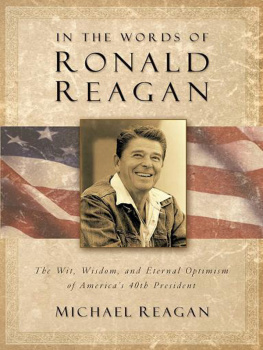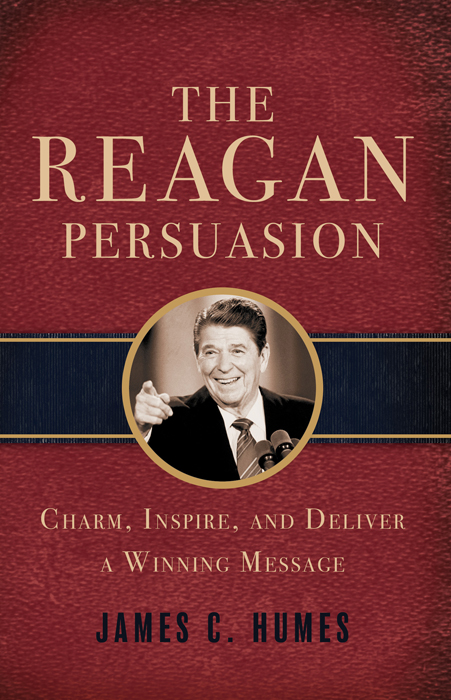Again, my thanks to Linda Graham, who transmitted my handwriting into manuscript form with constructive comments and suggestions, and to Barbara Veylupek, for her assistance. I also had assistance from Susy Brandt.
I appreciate the efforts of my literary agent, Carol Mann, in a flat book market.
Hillel Black, my editor, made helpful and constructive comments that shaped and improved the manuscript.
Finally, I have to thank Steve Schuck of the Schuck Foundation and its president, Don Griffin, whose support makes possible my writing and lecturing.
The Fifteen Secrets of the Great Communicator
* * * * *
Ronald Reagan was more than just the Great Communicator. He was the giant political personality of our time. No one would call Reagan a political philosopher, least of all himself. But Reagan would profoundly reshape the political dialogue in America. Just as his early hero Franklin Roosevelt made liberalism the dominant American political philosophy, a half-century later Reagan would make the majority of his countrys citizens accept conservatism as their worldview. But, if Franklin Roosevelt promised more government as the solution to society ills, Reagan would say the government was not the solution but part of the problem. Reagan, like Teddy Roosevelt, found the White House a bully pulpit for promoting his views and persuading Americans to adopt them.
Won the War Without Firing a Shot
British Prime Minister Margaret Thatcher said of Reagan, He won the Cold War without firing a shot. Certainly the U.S.s overwhelming superiority in nuclear defense systems played an important part. But as powerful as the weaponry were Reagans words. When most of our academic experts on the USSR, including those of our State Department as well as the British Foreign Office, projected the continuation of the Soviet Empire and the Cold War for at least two more decades, Reagan prophesized to the British Parliament an earlier date for its collapse. Reagan asserted: Marxism is on the ash heap of history. That phrase resonated in the Soviet satellite countries east of the Iron Curtain, and countries like Poland responded to Reagans challenge.
Seller of the Free Market to the Free World
For decades, American presidents had shrunk back from praising the virtues of capitalism. To say something positive about the profit incentive was like defending millionaires. In speaking in Western Europe, where just about all of the countries had socialist or social democratic governments, American presidents had shied away from lauding the profit motive as a key to economic growth. Profit was to many a euphemism for greed. Reagan was the first president to proclaim the greatness of the free market society, as well as freedom. Rather than echoing the defensiveness of previous presidents, he mounted an offensive on behalf of capitalism.
Mr. Gorbachev, Tear Down This Wall!
The citizens of East Germany, also known as the German Democratic Republic, were altogether painfully aware of the different standards of living on both sides of the Iron Curtain, and proved to be a receptive audience. When Reagan pointed out there was no record of any West Germans climbing the Wall to go into East Germany, or of any Austrians trying to cross into Hungary, his message filtered into Eastern Europe, triggering a rising wave of protests that began in Poland. Reagans words spread the seeds of counterrevolution. His demand to the Soviet leader in Berlin, Mr. Gorbachev, tear down this wall, would be the rallying call for East Germans a decade after he proclaimed that communism was on the ash heap of history.
Readers need to be reminded that before Reagan entered the White House in 1981, Republicans had not controlled the House in Congress since 1954 or the Senate since 1956. Most of the big, populous eastern states were dominated by Democrats, and so was much of the rural south. The Democrats were the overwhelming majority party.
In 1981, when the Democratic House of Representatives, led by Speaker Tip ONeill, opposed President Reagans tax cutting reforms, as well as his call for deregulation, Reagan went over the head of Congress by appealing in his speeches to the American people, and his programs of cutting taxes and red tape prevailed.
Great Persuader
Reagan was not only the Great Communicator but he was also the Great Persuader. Lord Bryce, author of The American Commonwealth , wrote in 1908, The great president would be one who could both stir audiences at the stump, as well as sway members of the caucus. In other words, he could sell to mass audiences, as well as one-on-one. Reagan won hearts and minds in his private conversations and in his public addresses, as well. His affability and choice of words melted the potential hostilities of adversaries and created a relaxed atmosphere for an exchange of views. He made it seem effortless and not strained, but he prepared for those meetings with sedulous care.
Secrets of Reagan
No advice on speech could ever make you a clone of Ronald Reagan. As Lady Thatcher told this writer in October 2007 in the House of Lords, James, they threw away the mold when they made Ronald Reagan. But you can learn Reagans secrets of style, presence, and flair, as well as his techniques for making a talk powerful and persuasive.

